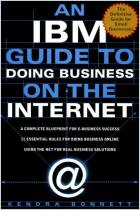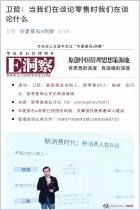While “everything stores” such as Amazon lead the pack in the B2C marketplace space, smaller retailers can still benefit from the marketplace model. Learn why specialization and finding your niche market are essential if you want to profitably embrace a marketplace model. From the intelligent curation of products to the adoption of a flexible technology stack, gain insight into the best ways to transition to a marketplace model. Discover the seven elements of success you should unlock at your company to stay competitive and adaptive in a dynamic global market.
Boost profitability and harvest valuable data insights by adopting the B2C marketplace model.
Online B2B marketplaces are on the rise, accounting for 67% of global e-commerce sales — that’s 40% more than just 10 years ago. Shoppers are drawn to marketplaces due to their competitive pricing, product variety, and ease of use, while retailers appreciate that they can boost their product range and unlock returns on relatively minimal investments. Boston Consulting Group research finds that marketplaces outperform traditional e-commerce sites in numerous ways: attractive delivery; competitive pricing; website navigation; product variety; attractive returns; availability of products in stock; and consumer loyalty rewards.
Given that 87% of consumers plan to spend the same amount or more on marketplace purchases in the next year, it’s no surprise that marketplaces are “steady money makers” for operators. Marketplace operators can earn commissions as high as 25% to 30% in fashion verticals, while typically earning commissions of between 8% and 15% on purchases. Marketplaces provide fast and relatively low-effort...
Khaled Tawfik, Tanmay Jain, Ali Harcourt, and Ammaarah Subjally are professionals with Boston Consulting Group.













Comment on this summary